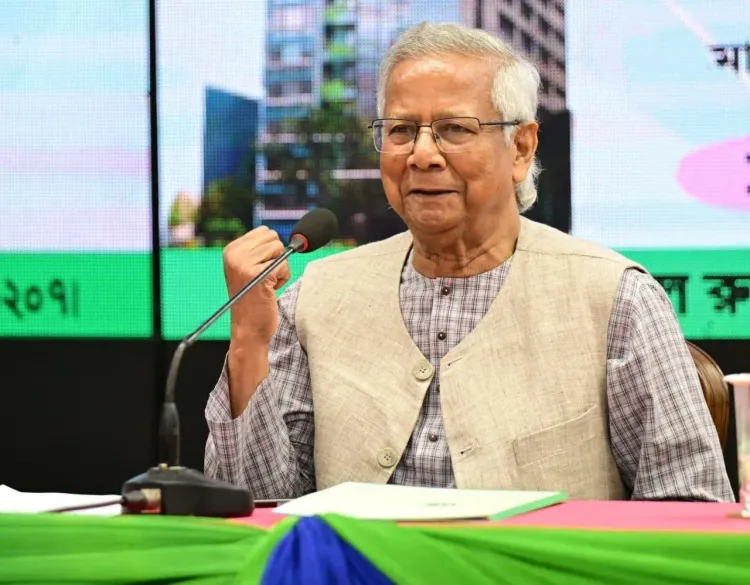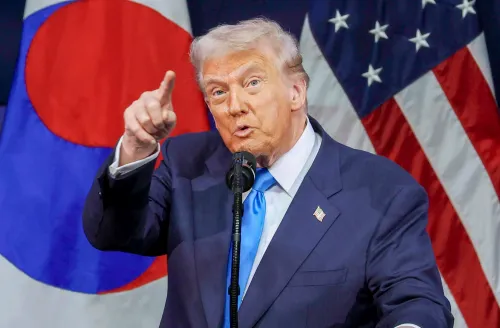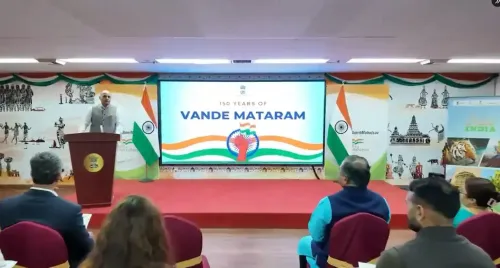Why did the Fundamentalist Yunus regime in Bangladesh cancel a progressive diplomat's Kolkata posting?

Synopsis
Key Takeaways
- Diplomatic Norms: Diplomats are expected to respect local customs and practices.
- Principled Stance: Shabab-bin Ahmed's opposition to animal sacrifices reflects a commitment to cultural sensitivity.
- Regime Response: The Yunus regime's actions reveal a resistance to progressive values.
- International Reactions: Analysts commend Shabab's bravery in a challenging political climate.
- Human Rights: The incident raises concerns about the state of human rights in Bangladesh.
Dhaka, May 29 (NationPress) A Bangladeshi diplomat was recently compelled to return to Dhaka rather than taking up his new role in Kolkata after he expressed opposition to animal sacrifices during Eid at the High Commission premises, aiming to honor the sentiments of Hindus and non-Muslims.
Shabab-bin Ahmed, previously serving as Minister at the Embassy of Dhaka in The Hague, had received approval from Bangladesh's Ministry of Foreign Affairs' Administrative Division (Establishment) on November 21, 2024, to assume the position of Deputy High Commissioner in Kolkata.
He was slated to commence his new role in June this year. However, the order was revoked on May 22, reportedly due to his remarks advocating a ban on animal sacrifices during Eid within the High Commission, a tradition upheld for the past four decades.
Shabab's principled and brave stance was evidently unwelcome to the interim government in Bangladesh, led by Muhammad Yunus, along with some of his advisors and student leaders influenced by Jamaat, who hold radical Islamic views and maintain an anti-India stance.
Ahmed, who contended that diplomats "must respect the customs of the host country", has now been summoned back to Dhaka.
Analysts, however, have lauded Shabab-bin Ahmed for his exemplary diplomatic acumen in conveying his message with bravery during a period when the Yunus government is perceived as dysfunctional.
"Fully aware that the fundamentalist hardliner regime in Bangladesh would not tolerate any adherence to progressive and civilized behavior, Shabab, a seasoned diplomat, endeavored to uphold international diplomatic norms which dictate that diplomatic missions should be sensitive to local customs and practices to avoid unnecessary or intentional violations," noted a former diplomat.
Regrettably, the undemocratic and chaotic environment in Dhaka does not allow for any demonstration of civilized and progressive behavior. Individuals like Shabab, instead of receiving recognition for their cultural sensitivity, face harassment and persecution," he added.









